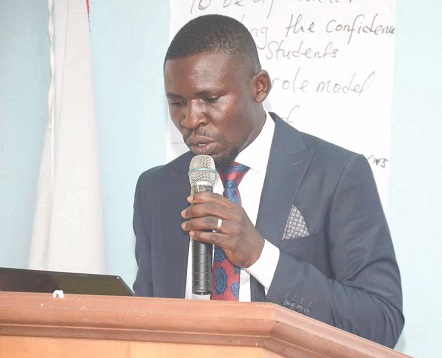
Private schools demand broader consultations on road safety directive
Private schools in the country have called on the National Road Safety Authority (NRSA) to hold broader stakeholder consultations to seek the inputs of its members before taking any decision on the operation of school buses for the transportation of students.
That, they said, was better instead of the current position the authority had taken to direct them to submit the details of vehicles and drivers by the end of this month, which was not feasible in view of the short notice.
The Executive Director of the Ghana National Council of Private Schools (GNACOPS), Mr Kwasi Gyetuah, told the Daily Graphic last Tuesday that although it was not against any decision of the authority to put in place safety measures for students, it thought involving school authorities was key to coming out with a comprehensive decision that would contain the inputs of all stakeholders.
Partners
“The situation calls for stakeholder engagement and they (NRSA) need to meet the rightful stakeholders so that pragmatic structures can be put in place for the safety of children. It should not be a system like they want to punish somebody, meanwhile the same buses are on the market and are being operated by other people,” he emphasised.
Recall
The NRSA has directed managers of basic schools, which operate transport services, to submit details of qualified drivers and vehicles assigned for transporting pupils to the authority latest by February 28, this year.
Additionally, the authority has urged schools located by major roads and in urban environments, in particular, to collaborate with their local assemblies, parent-teacher associations (PTAs) and school management committees (SMCs) to provide information on designated traffic wardens who will assist the schoolchildren to cross the roads during the peak hours.
The move by the NRSA is part of measures to curb road crashes among children under 18 years, which constitute about 12 per cent of the total road fatalities in the country.
Request
According to Mr Gyetuah, the council would make a formal request to the authority to call for a meeting to look at the issue holistically.
The GNACOPS Executive Secretary noted that the council was very concerned about the safety of children under the care of private schools and so had been educating members on the general safety of students not only on board buses but the environment they operated in as well.
He said looking at the work the NRSA wanted to do, it would take some time to get the data on the large number of schools that were spread across the country.
Challenges
For instance, Mr Gyetuah said the council had over 22,000 private schools in the country, which were sometimes difficult to reach through telephone because of network challenges in certain areas, and that “if you want data on them you need not less than a year to prepare a well-compiled one and so you cannot just use one month to do that. That is why when we meet on the right table and then all facts are laid bare, both parties will appreciate the workload and then it will help to determine the timeline that will be most appropriate,” he said.
Mr Gyetuah indicated that most of the private schools were sited in very remote parts of the country where there were no government schools and so they played a very critical role in the transportaion of students in spite of the bad nature of roads.
